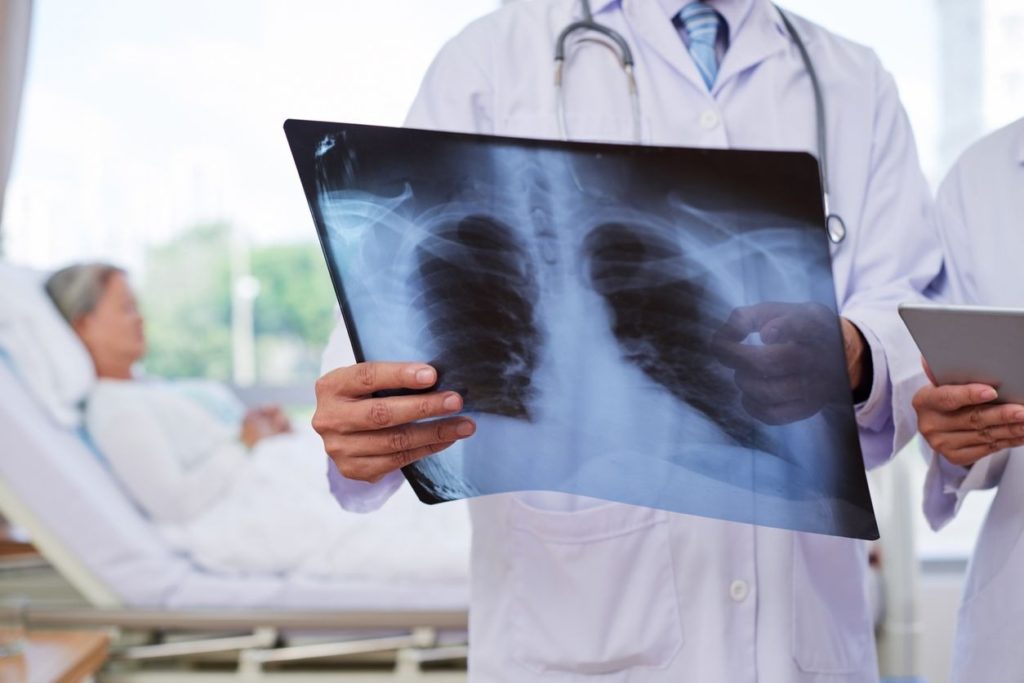Pneumonia: guide to this acute respiratory infection
Caution : You must consult your doctor for your health. This page presents only a personal and alternative point of view which should not be considered as an attempt to prescribe medicine.
Pneumonia is a disease that affects many people around the world.
Because of its complexity, it can be difficult to detect and treat.
What is pneumonia?
Pneumonia is a respiratory infection caused by inflammation of the lungs.

It is usually caused by a bacteria or virus.
However, it can be caused by inhaling chemicals and other irritants.
Pneumonia is manifested by difficulty in breathing resulting from the filling of the alveoli in the lungs with fluid, which prevents the flow of oxygen in the blood.
Pneumonia is a term that encompasses many infections of the lungs.
So, depending on the cause and severity of the disease, there are basically four types of pneumonia.
We find extra-hospital pneumonia which is the most common form.
It is caused by viruses, bacteria and other organisms acquired in a non-hospital setting.
Hospital pneumonia, also known as nosocomial pneumonia, which is contracted in a hospital establishment and occurs approximately 48 hours after admission to the latter.
Aspiration pneumonia which is caused by inhaling irritants into the lungs.
Opportunistic pneumonia which affects people with weak immune systems, for example, those with cancer, AIDS, etc.
The bacteria responsible for this infection are harmless to those with a healthy immune system.
Causes and symptoms
Pneumonia are infections that have different causes.
Bacteria are the most common cause of pneumonia in adults.
Children contract this infection through viruses.
People who already have health problems such as AIDS are prone to pneumonia due to opportunistic microorganisms.
Regarding the less serious pneumonia, they are caused by mycoplasmas, microorganisms with characteristics of viruses and bacteria.
The majority of these respiratory infections are transmitted the same way as a cold or the flu.
The fine droplets projected from the nose and mouth, as well as contact with the hands, are enough to transmit the disease.
As a result, pneumonia can present with a cough, sudden fever, chills, and difficulty breathing.
However, in pneumonia, the cough is often accompanied by yellowish or greenish sputum, and sometimes streaked with blood.
In addition, it is accompanied by shortness of breath, muscle pain, headaches, loss of appetite and general fatigue.
In the case of severe pneumonia, there is a very high fever which sometimes reaches 40.9 ° C.
Altered consciousness, rapid pulse, chest pain during deep breaths, and blue lips and nail beds are also symptoms of advanced pneumonia.
What are the possible treatments?
Bacterial pneumonia is often treated with antibiotics on prescription.
It is very important to follow the said prescription exactly and to finish the full course of treatment, even when the condition improves, to avoid a relapse.
Regarding viral pneumonia, no curative treatment exists for the moment, the body generally ends up getting rid of the viruses.
A doctor can still help you find solutions to relieve the symptoms.
However, there are treatments to prevent pneumonia.
One of them concerns diet.
A diet rich in organic fruits and vegetables helps strengthen the immune system.
Regular physical activity such as walking or running, as well as getting enough sleep also helps strengthen the immune system.
Vaccination is another treatment for the infection, although it is very controversial.
However, there are not vaccines for all forms of pneumonia.
However, the two most common forms can be prevented with the pneumococcal vaccine and the influenza virus vaccine.
The pneumococcal vaccine is especially recommended for people over 65 years of age and those with chronic lung or heart disease as well as those who have had their spleen removed.
Washing your hands with soap frequently or using hand sanitizer is also a way to prevent the spread of viruses and bacteria that can cause pneumonia.
We can thus remember that pneumonia is a disease that can be confused with a cold and requires special attention to avoid the most serious forms.
Thus, it is advisable to consult a doctor if the symptoms persist.
❤ The ultimate guide to breathing
Intermittent Breathing : Discover the method to quickly relieve your anxiety and chronic fatigue (positive effects from the first use).Read also :
Previous article : Wim Hof breathing method: benefits and dangers?
Next article : Why breathe through your nose in yoga?

